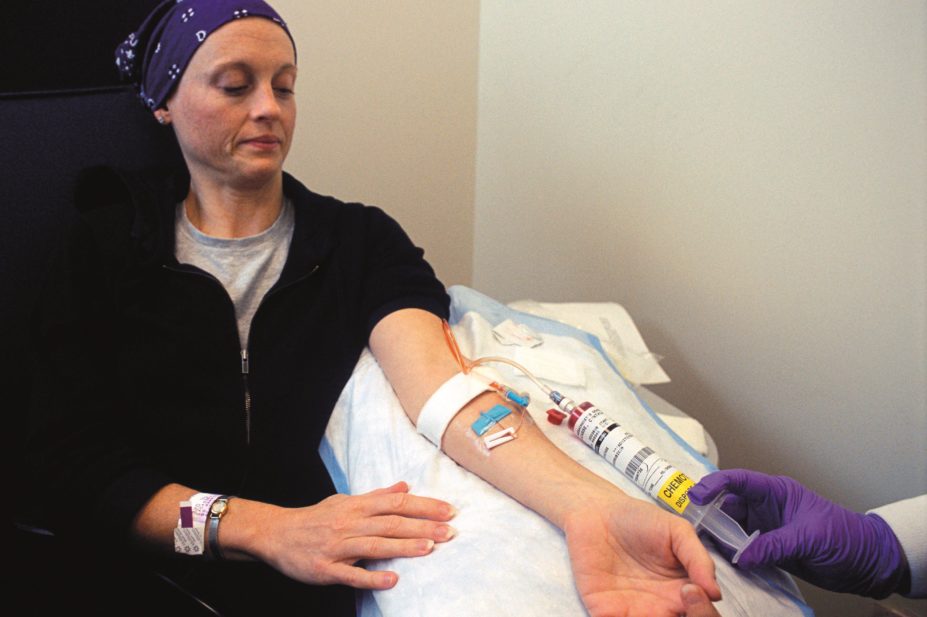
Science Photo Library
A new rescue treatment for patients accidentally given an overdose of chemotherapy has been approved by the US Food and Drug Administration (FDA).
Uridine triacetate, marketed as Vistogard by Wellstat Therapeutics, blocks cell damage caused by fluorouracil chemotherapy. It can be used in the case of accidental overdose of fluorouracil or capecitabine chemotherapy, or in the event that a patient develops life-threatening toxicities within four days of receiving the drugs.
In two open-label studies, 96% of 135 patients survived after being given uridine triacetate for overdose or life-threatening toxicity following administration of fluorouracil or capecitabine. Survival was only 16% in 25 patients who suffered an overdose of fluorouracil, based on historical data, says Wellstat Therapeutics.
Fluorouracil and capecitabine are used to treat a range of cancers, including breast, bowel, oesophageal and pancreatic cancer. Although overdose is rare, “[this] approval is a first-of-its-kind therapy that can potentially save lives”, says Richard Pazdur, director of the Office of Hematology and Oncology Products in the FDA’s Center for Drug Evaluation and Research.
Uridine triacetate, marketed as Xuriden, also received a licence from the FDA in September 2015 for the rare metabolic disease hereditary orotic aciduria, which is thought to affect only 20 people worldwide. Patients with the condition are unable to synthesise uridine, an essential component of ribonucleic acid in cells.


